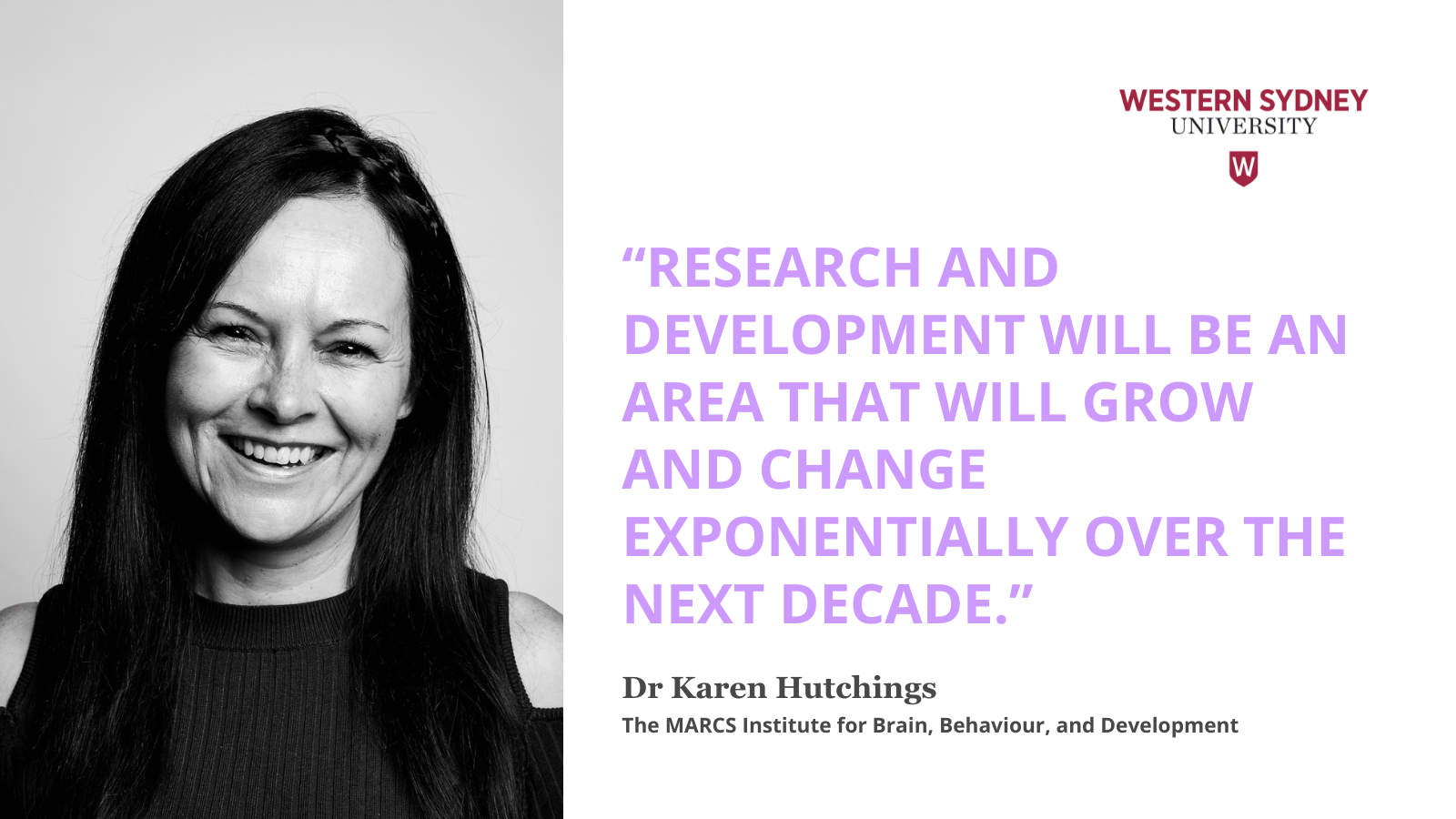What’s Your Research Story – Dr Karen Hutchings

In “What’s Your Research Story”, we delve into the diverse talents and achievements within MARCS Institute, celebrating milestones and innovation.
This edition, in conjunction with Western Research Week 2024, features Senior Research Development Officer, Dr Karen Hutchings. Karen plays a crucial role at the MARCS Institute, overseeing research funding initiatives and managing daily research operations. She provides strategic guidance and support to the Director of Research and the Institute Director, and offers mentorship to researchers throughout the funding application process, from drafting to submission.
Join us as we gain insights from Karen about her professional journey and her vision for the evolving research landscape in the next decade.
How did your career path transition from completing your PhD to entering research development?
Before, during, and after completing my PhD (“The mum with the washday smile”: post-war advertising, consumerism and representation of femininity in Australia 1955-1965) at the University of Sydney, I worked as a research assistant in the history department at The University of New South Wales (UNSW) on projects including the UNSW 50th anniversary history, the Irish in Australia (both with Professor Patrick O’Farrell) and on Tasmanian convicts (with Dr Deborah Oxley).
Wanting to escape the precarity of the itinerant life of a history postdoc, I then decided to pursue a career in educational publishing, ultimately working with academic authors to produce university textbooks in Accounting, Finance, Political Science, Study Aids and Management for Pearson Australia’s Higher Education Division as a Senior Commissioning Editor.
Research Development came much later – in 2015 – as I was approached by Macquarie University to assist with the submission of two ARC Centre of Excellence applications in their Departments of Psychology and Cognitive Science. This role was a significant departure from educational publishing but used many of the same project management skills I had acquired in publishing, and as a part-time role was better suited to the needs of my young daughter at the time. I began my role at MARCS Institute in February 2016 just after the end of my contract with Macquarie University.
What do you find most fulfilling about your role as Senior Research Development Officer?
As when I worked in publishing, I have had to learn about a lot of different areas quite outside my academic comfort zone, including subject specific terminology, acronyms and relevant funding rules and requirements for research funding in all categories. Working across the breadth of the MARCS Institute research certainly makes life very interesting and no two days are ever quite the same.
The most rewarding part of my role is developing working relationships with researchers at all levels and helping them in preparing and submitting stellar grant applications that will hopefully also deliver funding for their projects and advance their careers.
With my editorial background in preparing marketing copy and back cover blurbs, I love wordsmithing most of all – helping researchers transform academic language into something succinct and pithy that can be understood by a general audience, and cutting down word counts to meet specific character limits.
How do you envision the research landscape evolving in the next decade?
I think that research and development will be an area that will grow and change exponentially over the next decade.
As we are already seeing pressures on researchers to find funding for their research while demonstrating impact and engagement, and alignment to government priorities, I think there will be an increasing emphasis on creativity and flexibility in strategizing research directions to find viable avenues for research without compromising research vision and integrity.
Working with philanthropic and industry bodies rather than relying on government sources for research funding, and capitalising on the societal challenges of artificial intelligence and machine learning will be key aspects of future directions in research.



